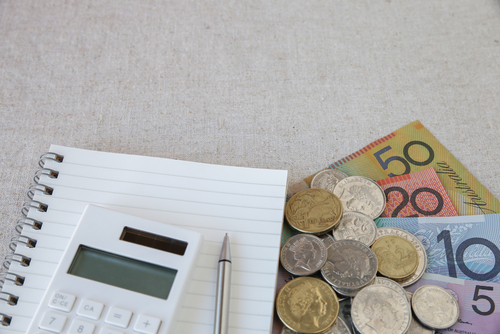Do These 7 Money Management Tasks Before Investing in Houses

Once you’ve decided to create financial freedom through investing in houses it’s time to take action.
But before you start to scan through house listings looking for the right opportunity, take a good look at your personal money management skills.
Are you really ready to become a property investor?
Do you…
1. Watch your spending?
One thing you’ll quickly learn when you start investing in houses is how to prioritise your spending.
What you had in terms of surplus cash will need to be managed more judiciously than you may have done in the past.

2. Have a budget?
You don’t have to track every last cent…unless you want to…but you should have a budget that can be easily adjusted once you begin investing in houses.
In fact, it’s a good idea to consult with a property mentor or financial planner before buying an investment property. He can help you come up with a projected budget to try out for size.
This can give you a good indicator of what your lifestyle will look like once you’ve started investing in houses.
3. Have emergency money set aside?
Whether you’re investing in houses or not, building up an emergency fund should be at the top of your money management list.
Many experts recommend setting aside anywhere from six months to a year’s worth of money to cover unexpected financial loss.

4. Know your capacity for risk?
What is your capacity for risk?
What makes you most fearful about investing in houses?
Is it the buying or maintenance costs? Dealing with tenant issues or losing money on your investment?
Work out what risks let you sleep at night and you’ll have a good barometer of your individual emotional and psychological ability to take on risk.
Then, sit down and work out your investing strategy using your own personal boundaries as a guideline.
5. Know your borrowing capacity?
A very important number to know, your borrowing capacity is simply how much you can afford to borrow.
Factors a lender will look at include.:
- Your existing debt load
- Your income
- Your assets
- Your savings
- Your credit history
- Your deposit amount
- The property’s value
6. Have bad debt?
Bad debt, also known as “consumer” debt, includes debt such as your credit cards, personal loans, home mortgage or car loans…essentially debt that doesn’t provide a financial benefit (unlike investment property debt).
Reduce or pay off your bad debt to increase your borrowing capacity and you’ll increase your investment property options.

7. Have a strategy?
Some things to consider when deciding on a strategy for investing in houses are.:
- The types of properties you’ll buy
- Where you’ll buy
- The structures you’ll use for those properties
- The number of properties you’ll buy
- How long you’ll hold your properties including if/when you’ll sell them
For more tips and advices related to Property Investment, book a FREE consultation with one of our expert Investment Coaches now!

Successful Property Investors Don’t Quit Their Day Job
You need that income! One of the primary things you need to be a successful property investor is a job. Why? Because you need money. You need a job to borrow money. You need savings or some cash to buy your first property. But the sad fact is, a lot of people...
6 Ways To Speed-Up Your Next Property Purchase
Get There Faster If you are already a property investor with one or even two properties, first of all, congratulations. You’ve taken some seriously great steps in creating your future wealth and a pathway to a work-less, play-more retirement with passive...
Property investing: Five ways to create cashflow boom!
When it comes to property investment there are some things you can never have enough of.
When it comes to property investment there are some things you can never have enough of. Good tenants, reliable builders, a great relationship with your bank.
But more than anything what you need is good cash flow.
Having a steady income of cash means never having to dip into your own pocket to top up repayments, complete repairs or make another purchase.
Here are the top five ways you can ensure the cash keeps flowing, so you can keep your investment portfolio growing.
Lock it in! How to protect your equity
Don’t be caught without it.
As a property investor who is building a portfolio, it’s vital that you have access to your equity whenever you need it.
There’s nothing more frustrating than finding that perfect new property to purchase, only for it to be held up – or worse still, lost completely – because your finances weren’t in good shape.
Having an interest-only loan structure with a healthy off-set account is a great way to ensure you have equity at your fingertips whenever you need it, but that’s not the only way…



